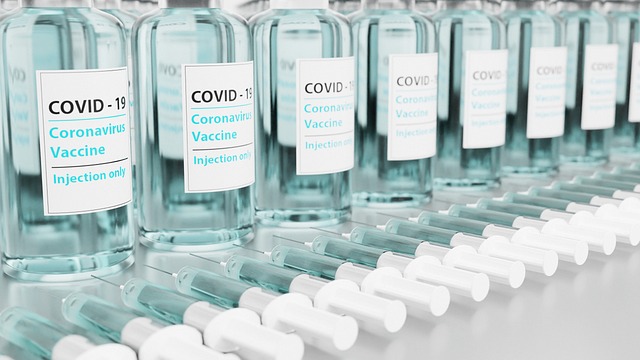CONTENTS:
- The Prevalence of Thrombotic Events Following SARS-CoV2 Vaccine Receipt: Data from the ITP Natural History Study Registry
- Ask the Experts
The Prevalence of Thrombotic Events Following SARS-CoV2 Vaccine Receipt: Data from the ITP Natural History Study Registry
Study authors: Jennifer DiRaimo, Caroline Kruse, Kate Foster, Alexandra Kruse, MD, Howard Liebman, MD, and Craig Kessler, MD.

Data was collected up to September 2023 using responses from three surveys within the ITP Natural History Study Registry. Both children and adults with ITP were included in the study if they completed all three registry surveys. Participants were divided into two groups: the clotting group and the non-clotting group. Data was analyzed using various statistical tests. In total, 695 participants were included in the study, including 667 adults (ages 18-87) and 28 children (ages 1-17). No children reported developing a blood clot following receipt of a COVID-19 vaccine dose. Only eight adults (1% of the study participants) reported experiencing a blood clot following administration of a COVID-19 vaccine. Of those eight, three also reported having a personal history of blood clots. One other participant in the clotting group reported having surgery three months prior to developing a blood clot following the vaccine.
Participants were older in the clotting group. Most participants were female in both the clotting and non-clotting group; and most participants reported having a diagnosis of primary ITP. Approximately 75% of the clotting group had a body mass index (BMI) greater than 35 compared to 21% in the non-clotting group (a BMI above 35 indicates a high level of obesity). None of the clotting patients reported having another autoimmune disease; however, a few of the non-clotting patients (9%) did, with the most common being lupus. Half of the participants who reported experiencing a blood clot had a previous splenectomy compared to only 25% in the non-clotting group, and this difference was statistically significant. The clotting group also had a statistically higher BMI ratio compared to the non-clotting group. Regarding treatment, more participants (37%) in the clotting group reported receiving a thrombopoietin-receptor agonist (TPO-RA) within the last six months compared to 18% in the non-clotting group.
Conclusion:
Blood clots reported following receipt of a COVID-19 vaccine dose were uncommon among individuals with ITP in our registry. Some participants who reported experiencing a blood clot also had a history of thrombosis or other risk factors. These results should serve as an additional reassurance to the ITP community that COVID-19 vaccines are safe, and the risk for a blood clot is small, but greater for ITP patients who struggle with obesity and have had a splenectomy. Such individuals should be monitored more closely with new updated vaccines as their thrombotic potential is unknown.
Ask the Experts

Question:
My platelet counts generally run between 20,000–40,000. I have no bleeding problems and I’m not being treated. But I have terrible fatigue that’s getting worse each year. Assuming this is due to the ITP, is fatigue enough of a reason to start treatment?
Answer:
Fatigue can be very-well related to the ITP. It is surprisingly prevalent among ITP patients. Many physicians believe that if you feel fatigued enough—even if you’re not bleeding and your platelet count is above a certain number—it wouldn’t be unreasonable to attempt treatment.
One important consideration is that if you start treatment and your platelet counts improve, this may not always improve your fatigue. We don’t fully understand why fatigue occurs in ITP, but there are data that show it may be related to inflammation throughout the body, not just due to platelet counts.
Dr. Kuter shared that he has about a half dozen patients in this exact situation. The fatigue in about half of the group got better with treatment, in the other half it didn’t. All to say that there are many factors that can be causing someone’s fatigue.
Question:
I was diagnosed with ITP 6 years ago—young and healthy. I went through 2 years of various therapy: rituximab, steroids, IVIG. My platelets would improve to about 90,000–100,000 then plummet back down to about 6,000. If the rest of my body feels great, if I’m travelling and doing various physical activities, is it okay to just accept that my platelets are at 6,000? I stopped treatments a few years ago, I just have a check-in with my hematologist every year and my platelets are usually about 6,000. Besides the fear of bleeding, is there a reason for me to go back on treatment to get my platelets higher?
Answer:
Since you haven’t tried thrombopoietin receptor agonists (eltrombopag, romiplostim, avatrombopag), these therapies are worth at least trying. Especially since you’re an active person, we’d want your platelet counts to be higher.
As you grow older, you will also develop other stresses or may accidentally get hurt. The benefit-to-risk ratio for a thrombopoietin receptor agonist is extremely favorable, so we’d urge you to give it a try.
There are also studies showing that if you have chronically low platelets, they may develop microvascular (small) bleeds in the brain. Especially if you lift weights, which increases intra-abdominal pressure and in turn increases intra-cerebral (brain) pressures, you may be putting yourself at risk. Thrombopoietin receptor agonists have been revolutionary in the management of our ITP patients, so it’s worth giving them a try.
